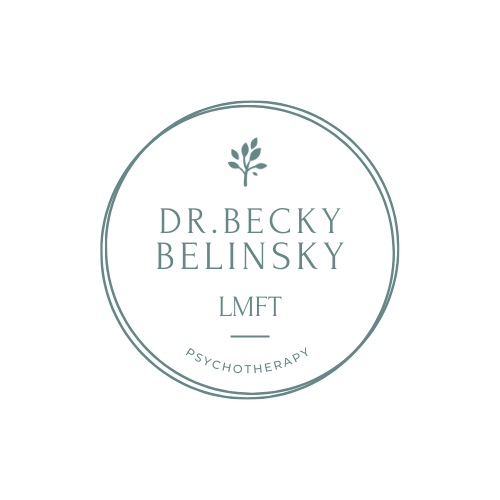How to Cope with Anxiety
Anxiety is a near universal experience. Especially in our present-day world, and in a city like Los Angeles, there are so many things vying for our attention. While anxiety can be really uncomfortable, it isn’t inherently harmful and it’s something we can learn to cope with. It isn’t possible to completely get rid of anxiety, and anxiety can sometimes be helpful. For example, research has shown that a moderate level of anxiety actually improves performance for things like taking a test, performing music, or playing a sport. However, when anxiety becomes overwhelming or gets in the way of living your life, then it can become a problem. Here are some steps that you can practice to help you cope with anxiety.
1. Name it to tame it
For all emotions, including anxiety, just naming the experience is helpful. Neuroscientist Dr. Dan Seigel coined the phrase “name it to tame it,” because naming the emotion helps it feel more manageable. You can say to yourself “I am feeling a lot of anxiety right now.” Or, “This thing I’m noticing is anxiety.”
2. Is it scary or dangerous?
The next step is to ask yourself if the trigger for your anxiety is actually dangerous or if it's just scary. Anxiety is an appropriate and helpful response when something is actually dangerous. For example, if you are hiking and you see a bear, anxiety is there to warn you and help you make decisions to protect yourself. Other times, anxiety makes us feel like something is dangerous when in fact it is just scary. If you are worried about a meeting or a test the next day, reminding yourself that it is scary but not dangerous – everything will be okay, even if it goes badly – can be helpful.
3. Self-Compassion
Even if your anxiety is present in situations where there isn’t actually danger, it is still important to practice self-compassion and acknowledge that your anxiety is trying to help you. When we resist anxiety or get angry at it (or ourselves) for feeling it, this usually just makes the anxiety worse. Instead, try acknowledging that the anxiety is trying to protect you and that you don’t need it in this situation.
4. Practice tolerating anxiety
Allow the anxiety to just be. It is so tempting to try to make the anxiety go away and get frustrated when it sticks around, but the more we try to fight anxiety the more it actually digs it’s heels in. It sounds counterintuitive, but the best way to cope with anxiety is to acknowledge it’s presence, let it be there, and turn your attention elsewhere. Mindfulness practices are helpful for this skill such as practicing mindful breathing, doing a body scan, doing a grounding exercise, and tolerating uncomfortable thoughts without engaging with them.
5. Self-sooth & distract
Once you have done all of this, you can take care of yourself by doing something soothing and distracting. Instead of fighting with the anxiety, acknowledge it’s presence and focus on something else that feels soothing (like taking a shower, listening to music, making a mug of tea) or distracting (like talking to a friend or watching TV).
I hope this helps you have an idea of how to cope with anxiety. If you want extra support, I would love to help. Feel free to call me at (424) 231-5877 for a free 15-minute phone consultation or send me a message. If you are looking for help with eating disorders, anxiety, or relationship issues, you can read more about how I can help here.
